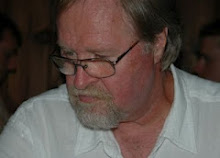 High-flying Richard Branson has been on a decades-long quest for answers to the big questions that face us. His iconic status has put him at the forefront of the Conversation of a Generation. He has created a forum for discussion that he calls Capitalism 24902 (the measure of the circumference of the earth).
High-flying Richard Branson has been on a decades-long quest for answers to the big questions that face us. His iconic status has put him at the forefront of the Conversation of a Generation. He has created a forum for discussion that he calls Capitalism 24902 (the measure of the circumference of the earth). No anti-capitalist, Branson has been profit-making from the growing unrest over monopolistic free-booting that marks the genre. He was demonstrating his dissent with single-purpose profiteering long before Occupy Wall Street America
Branson’s latest gambit is a book called Screw Business as Usual, which backgrounds his version of what The Economist calls his “philanthrocapitalism” in its latest issue. The spark for this discussion is a fire that recently levelled his house on Necker Island , off the coast of Virgin Gorda and one of the minor British Virgins. Necker Island
A Caribbean retreat is a long way from the cold concrete squats of middle America . So are the third world conditions Branson wants to correct. But the principle of making more with lemons than mere personal fortunes is central to both trains of thought.
Branson’s new book can be a primer for anyone who thinks seriously about where the “Occupy” movement could turn its attention next.

3 comments:
I can't imagine anyone who might wonder why Branson wouldn't jump into civil unrest like "Occupy". He is the consummate opportunist. Imagine the process of inviting two doddering old men -"icons" - Mandela and Tutu - to his private island in the Virgins.
Branson is no Gates or Buffett. Altruistic? I doubt it. He always strikes me as, all about him.
I think he is somewhere between P.T.Barnum and Mike Todd. And I don't begrudge him his spot.
Phil,
I was reading my Christmas edition of The Guardian and came across an article which is quite relevant to some of your recent posts. It tries to make sense of the wave of popular unrest which swept around the globe over the past year, whether against political repression (Tunisia, Egypt, Syria); media excess (the humbling of the Murdoch empire); or economic meltdown (Occupy Wall Street, rioting in Europe, etc.)
There is a reference to a blog written by a BBC Economics Editor by the name of Paul Mason. This particular post is called “Twenty reasons why it’s kicking off everywhere” and offers – in no particular order – some bullets about what Mason thinks are some of the common factors which link all of these movements together.
http://www.bbc.co.uk/blogs/newsnight/paulmason/2011/02/twenty_reasons_why_its_kicking.html
I thought it was quite interesting; so perhaps your readers may too. Incidentally, I predict you will have rich fodder for continued posts in 2012, but as the world’s economic meltdown reaches terminal velocity, I fear you may be chronicling another kind of ‘boom’ …
Michael Ignatieff has a very thoughtful column in today's (January 1,2012) online Globe and Mail.
Here's the connection. Definitely worth a few minutes of your time.
http://www.theglobeandmail.com/news/politics/michael-ignatieff-theres-no-way-out-but-a-new-politics-of-fairness/article2287995/page2/
He touches on many of the subjects you've been dealing with lately, Phil - particularly the patent unfairness of our income structures.
The poor are indeed getting poorer, and it doesn't bode well for those standing ahead of them in line.
Post a Comment